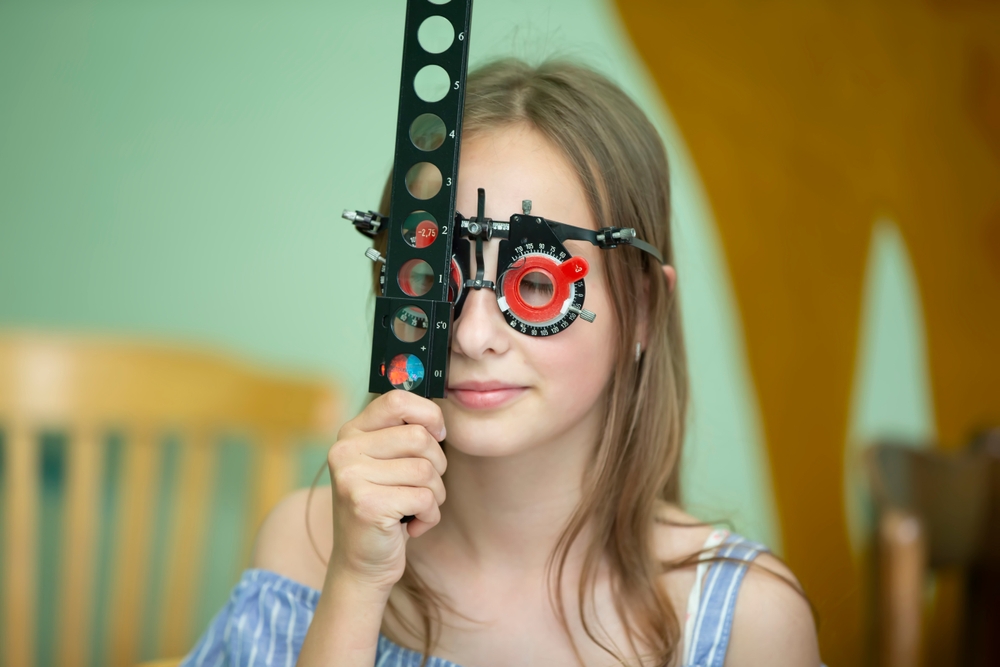
Vision therapy is a specialized treatment program designed to address a wide range of visual issues that can impact a child's academic performance and overall development. It is a non-invasive, customized approach that aims to improve the coordination and efficiency of the visual system, enabling children to better process and interpret the information they see.
The Importance of Optimal Vision for Learning
Optimal vision is a crucial component of a child's academic success. Vision is not just about seeing clearly; it involves a complex interplay of various visual skills, such as eye teaming, focus, tracking, and visual perception. When these visual skills are not functioning at their best, it can lead to a range of learning difficulties and challenges.
Children with undiagnosed or untreated vision problems may struggle with tasks like reading, writing, and comprehending information. They may experience headaches, eye strain, or difficulty concentrating, which can hinder their ability to effectively process and retain information in the classroom.
By addressing these vision-related issues through vision therapy, you can help your child overcome these barriers and unlock their true academic potential.
Signs That Your Child May Need Vision Therapy
If your child is experiencing any of the following symptoms, it may be an indication that they could benefit from vision therapy:
Frequent headaches or eye strain
Difficulty with reading or comprehending written material
Poor handwriting or difficulty with fine motor skills
Clumsiness or poor hand-eye coordination
Frequent loss of place while reading
Difficulty with depth perception or spatial awareness
Avoidance of close-up work or near-vision tasks
Frequent eye rubbing or blinking
Difficulty with sports or physical activities
If you notice any of these signs, it's essential to have your child's vision evaluated by an optometrist, who can determine if vision therapy is the appropriate course of action.
How Vision Therapy Can Improve Reading and Writing Skills
One of the primary benefits of vision therapy is its ability to enhance a child's reading and writing skills. Many vision problems can interfere with a child's ability to effectively process and comprehend written information, leading to difficulties with reading fluency, comprehension, and written expression. Through vision therapy, children can develop the necessary visual skills to:
Improve Reading Fluency: By enhancing eye tracking and focusing abilities, vision therapy can help children read more efficiently, with fewer regressions and better eye movements along the text.
Enhance Reading Comprehension: Improved visual processing and perceptual skills can enable children to better understand and retain the information they read, leading to enhanced comprehension and academic performance.
Enhance Writing Skills: Vision therapy can improve hand-eye coordination, visual-motor integration, and spatial awareness, which are essential for developing legible handwriting and effective written expression.
By addressing the underlying visual challenges that may be hindering your child's academic progress, vision therapy can unlock their full potential in reading, writing, and overall academic success.
Enhancing Visual Perception through Vision Therapy
Visual perception is a crucial component of a child's learning and development. It involves the brain's ability to interpret and make sense of the visual information it receives. When visual perception is impaired, it can lead to difficulties with tasks like reading, spatial awareness, and hand-eye coordination. Vision therapy can help enhance a child's visual perception by targeting specific areas, such as:
Visual-Spatial Skills: Vision therapy can improve a child's ability to understand and manipulate spatial relationships, which is essential for tasks like math, geometry, and problem-solving.
Visual-Motor Integration: By enhancing the coordination between the visual system and the motor system, vision therapy can improve a child's handwriting, drawing, and fine motor skills.
Visual Attention and Processing Speed: Vision therapy can help children develop the ability to focus their attention and process visual information more efficiently, leading to better academic performance and overall learning.
By addressing these visual perception challenges through customized vision therapy exercises, you can empower your child to better understand and interact with the world around them, unlocking their full academic potential.
Improving Coordination for Sports and Physical Activities
Vision is not only crucial for academic success but also plays a vital role in a child's physical development and sports performance. Many sports and physical activities require efficient visual skills, such as eye-hand coordination, depth perception, and visual tracking. Vision therapy can help improve a child's:
Eye-Hand Coordination: By enhancing the coordination between the visual system and the motor system, vision therapy can improve a child's ability to perform tasks that require precise hand-eye coordination, such as catching a ball or hitting a target.
Depth Perception: Vision therapy can help children develop better depth perception, which is essential for sports that involve judging distances, such as basketball, baseball, or soccer.
Visual Tracking: Improved visual tracking skills can enable children to better follow the movement of a ball or other fast-moving objects, leading to enhanced sports performance and reduced risk of injury.
By addressing these vision-related challenges through vision therapy, you can help your child excel in their physical activities and sports, boosting their confidence, coordination, and overall well-being.
Empowering Your Child's School Success with Vision Therapy
Vision therapy is a powerful tool that can unlock your child's academic potential and set them up for long-term success. By addressing the underlying visual issues that may be hindering their learning and development, vision therapy can help improve their reading, writing, and overall school performance.
At Vision Rehabilitation Associates, we are committed to helping your child succeed through personalized vision therapy. We will work closely with you and your child to develop a customized treatment plan that addresses their unique visual needs. Visit our office in Northbrook, Illinois, or call (847) 716-2340 to schedule a consultation and take the first step towards empowering your child's academic success.










